Red Wigglers in Outdoor Compost Bin?
KendraSchmidt
11 years ago
Featured Answer
Comments (24)
lonmower
11 years agoKimmsr
11 years agoRelated Professionals
Windham Landscape Architects & Landscape Designers · Fitchburg Landscape Architects & Landscape Designers · Redondo Beach Landscape Architects & Landscape Designers · Maple Valley Landscape Contractors · Brockton Landscape Contractors · Holland Landscape Contractors · Lakewood Landscape Contractors · Lantana Landscape Contractors · Vallejo Landscape Contractors · Fort Pierce Decks, Patios & Outdoor Enclosures · Monroe Decks, Patios & Outdoor Enclosures · San Jose Decks, Patios & Outdoor Enclosures · Spokane Decks, Patios & Outdoor Enclosures · Verona Decks, Patios & Outdoor Enclosures · Truckee Decks, Patios & Outdoor EnclosuresKendraSchmidt
11 years agolonmower
11 years agoKendraSchmidt
11 years agojolj
11 years agogardengal48 (PNW Z8/9)
11 years agocoachgrumpy
11 years agohalleone
11 years agoKendraSchmidt
11 years agoharry757
9 years agoharry757
9 years agoarmoured
9 years agoDiane
7 years agolast modified: 7 years agoJohn Donovan
7 years agolast modified: 7 years agoMaryMcP Zone 8b - Phx AZ
7 years agolast modified: 7 years agotheparsley
7 years agoJohn Donovan
7 years agojbaoffice
7 years agojbaoffice
7 years agoNevermore44 - 6a
7 years agomonomer
7 years agolast modified: 7 years agokimmq
7 years ago
Related Stories

GARDENING GUIDESGet on a Composting Kick (Hello, Free Fertilizer!)
Quit shelling out for pricey substitutes that aren’t even as good. Here’s how to give your soil the best while lightening your trash load
Full Story
GARDENING GUIDESHouzz TV: Make a Worm Bin for Rich Soil and Happy Plants
A worm-powered compost bin that can fit under a sink turns food scraps into a powerful amendment for your garden. Here’s how to make one
Full Story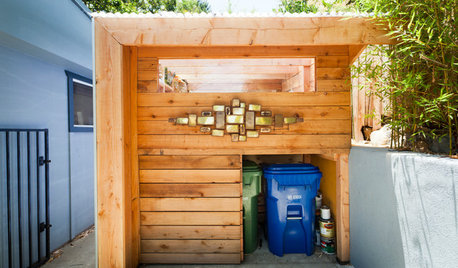
CURB APPEALHouzz Call: How Do You Hide Your Trash?
No one wants to see those trash and recycling bins. So where do you stash them while you wait for the garbage truck? Show us your designs!
Full Story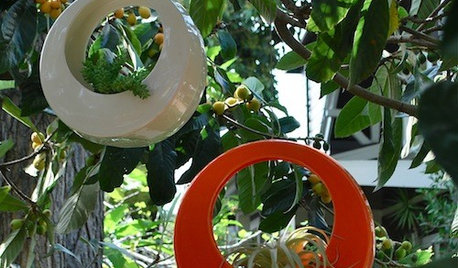
GARDENING AND LANDSCAPING40 Great Gifts for Gardeners
What to Get for Green-Thumb Types. It's a No-Gnome Zone.
Full Story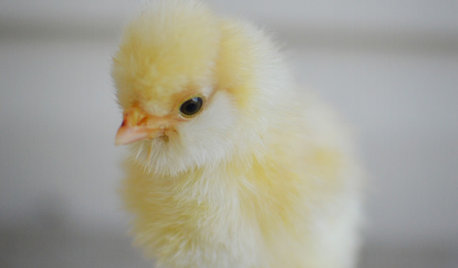
PETSWhat You Need to Know Before Buying Chicks
Ordering chicks for your backyard coop? Easy. But caring for them requires planning and foresight. Here's what to do
Full Story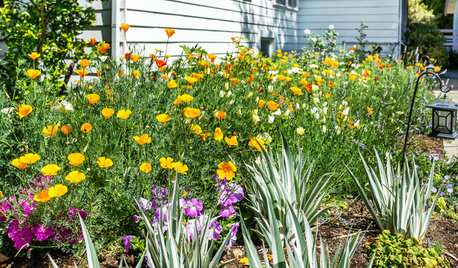
LANDSCAPE DESIGN10 Ideas for a Creative, Water-Conscious Yard
Check out these tips for a great-looking outdoor area that needs less water
Full Story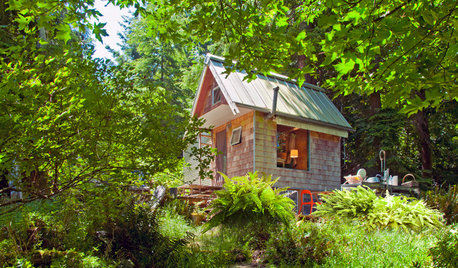
VACATION HOMESA Tiny Cabin for Glamping in the San Juan Islands
This petite rustic retreat provides a true indoor-outdoor experience for its vacationing owner
Full Story
MOST POPULARHow to Get Rid of Those Pesky Summer Fruit Flies
Learn what fruit flies are, how to prevent them and how to get rid of them in your home
Full Story
COOL-SEASON CROPSCool-Season Vegetables: How to Grow Radishes
Fast growing and bright, these easy-care veggies are great for kids and bring plentiful color to a fall or spring garden
Full Story
SAVING WATER11 Ways to Save Water at Home
Whether you live in a drought-stricken area or just want to help preserve a precious resource, here are things you can do to use less water
Full Story






armoured